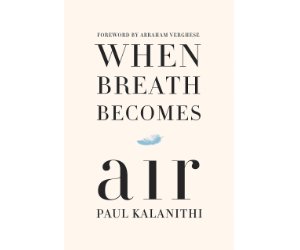Do you know anyone who raves about their mentor? A mentor can offer you expertise and motivation as you work toward your goal of entering medical school and becoming a doctor. A medical student, professor, physician, or anyone with experience and knowledge in the medical field who is able listen, relate, and help invest in your future can be a mentor. For example, finding a mentor who is a physician can provide you with the perspective of someone currently in the profession. Whereas a medical student can give you the first hand perspective of someone who has recently gone through the application process and is currently working toward their degree.
physician
Q&A with Physician-Author Femi Oyebode
Dr Femi Oyebode is a Professor of Psychiatry at the University of Birmingham and a published poet. He obtained his medical degree from the University of Ibadan (1977), followed by his MD at University of Newcastle, and his PhD in Wales (1998). In November 2016, he received a lifetime achievement award from the Royal College of Psychiatrists.
He is the author of the textbooks Sims’ Symptoms in the Mind: An Introduction to Descriptive Psychopathology, 4th Edition, Madness at the Theatre and Mindreadings: Literature and Psychiatry. He has also published 6 volumes of poetry, including Adagio for Oblong Mirrors; Master of the Leopard Hunt; and Indigo, Camwood and Mahogany Red.
Switching Specialties: Why It’s Never Too Late to Try Something Different
“So if you don’t mind me asking, why did you make the switch?” I get … Read more
Jump Starting Your Job Search While In Medical School: Part 3
Read about steps 1 and 2 in Part 1 of this series here.
Read about steps 3 and 4 in Part 2 of this series here.
You likely won’t start applying for jobs in earnest until you are a resident. But if you begin preparing for your job search while you are in medical school, you will have a competitive advantage when it’s time to start applying.
Immigrants, Insurance and Nonprofits: Our Generation’s Obligation
Republished with permission from here. The future of American health care remains uncertain. It was … Read more
Q&A with Dr. Alison Stansfield, Learning Disability Psychiatrist
Alison Stansfield, MBChB, MRCPsych, MD is the clinical lead and consultant psychiatrist for the Leeds … Read more
Financial Literacy for the Newly Minted Physician Part II: Introduction to Do-It-Yourself Investing
In our last installment, we recognized the value of money as a means of allotting your time in accordance with your values; identified financial independence for physicians as a goal worth pursuing from the earliest stages of your medical training; and discussed poor decisions that physicians commonly make, with the hope that we might tame the impulse to buy a new car or an irrationally expensive home fresh out of med school or residency.
Residency Caps: What Medical Students Should Know
Updated December 26, 2021. The article was updated to correct minor grammatical errors and technical … Read more
Q&A with Physician-Comic Authors: Drs. Mehtabdin and Mirza
Dr. Khurram Mehtabdin and Dr. Omar Mirza are doctors by day, comic book creators by … Read more
What You Should Know: Understanding Immunotherapy Techniques for Cancer Treatment
The American Cancer Society estimated that in 2015, there were 1,658,370 new cases of cancer diagnosed in this country and some 589,430 deaths. These widespread numbers mean that whether a new doctor enters into general practice, oncology or some other specialty, they are likely to have to work with cancer patients. Because of this, a good understanding of new developments in cancer treatment is important in order to inform and educate patients fully about their potential options.
What You Should Know: Exploring Techniques for Nonpharmacological Pain Control
What You Should Know is an ongoing series covering a range of informational topics relevant to current and future healthcare professionals.
Pain assessment and control is something which every doctor going into practice will have to face, regardless of his or her specialty. Pain is the number one reason why Americans seek out medical treatment in the first place and is estimated that some 50 million Americans suffer from some form of chronic pain – at a cost to the US health system of $100 billion a year. It is the leading cause of disability for Americans over the age of 45 and carries with it tremendous health and social costs to patients, their families and society as a whole.
Medical Students and Mental Health
Mental health is a topic which is discussed more openly in our society in recent decades and is, slowly, become less stigmatized. This, ironically, does not seem to be the case when it comes to the issue of mental health problems among medical students. The nature of medical school, and attitudes of medical students themselves, can set up barriers between students who need help and the programs that can help them. This article looks at the widespread nature of this problem in American and overseas medical schools, and also what can be done to help solve it.
Book Review: When Breath Becomes Air
If you read one book this year, make it When Breath Becomes Air. Do yourself a favor – do not read another word about this book before picking it up and experiencing it for yourself with as little foreknowledge as possible. For those of you who just can’t help yourselves, read on but be warned: due to the nature of the content there will be some spoilers.
Residents and Fellows: Your Guide to the Right Career Path
You’ve earned your medical degree, worked your way through your residency or fellowship program, and … Read more
A Comprehensive Guide To Medical Career Interviews
Interviews are often stressful—even for those who have gone on countless interviews. The best way to reduce the stress is to be prepared. These tips will help you through the entire interviewing process and ensure that you not only impress your interviewer but also know if the facility is the right place for you.
The Soft Skills You Need to be a Leader in Medicine
Medicine needs a strong core of leadership now more than ever. Medical students and new physicians spend massive amounts of time training and studying the basics of medicine, yet they may not be receiving training in many of the soft skills required to be a leader in today’s medical environment.
Being knowledgeable about disease and various forms of treatment is absolutely vital, but soft skills are what separates a good physician from a great physician. These skills include communication, collaboration, and confidence. As physicians, we are expected to practice as a team, and ultimately be the leader of that team. Let’s discuss how you can prepare to be a leader in medicine.
Humanitarian Opportunities for Medical and Pre-Med Students
Although repeated to the point of being cliche, “to help people” is one of the most popular answers would-be doctors give when asked why they want to go into medicine. The great news is that there are many humanitarian work opportunities for pre-med students, med students and even new doctors to undertake that will not only hone their clinical skills and make them more culturally competent physicians, but also allow them to give medical care to those who might not otherwise receive it.
Not “Ours” Anymore: Sharing Our Doctor Spouses
By Amy Rakowczyk
One thing is certain during medical school: your medical spouse is going to study and work a lot of hours. This is a necessary part of becoming a doctor. They need years of studying, preparing, and training in order to be able to perform the job. The time required means that you, the medical student spouse/partner, will have less time with them. There will be fewer hours when they are available. That is the hard reality.
It’s easy to start thinking about how unfair this is. You are left with gaping holes of time and are by default in charge of all the non-medical school items. You are working harder too, with less support. The unfairness of it can quickly turn into resentment and bitterness.
How Test Prep Prepares Me To Be An Effective Physician
Before medical school, the dream of becoming a physician involves helping people and curing disease. During medical school, that dream matures through educational and clinical experiences into a realization that being a physician is something much deeper, a permanent responsibility that only those who are doctors themselves will understand.
Every patient is a trial and error that can lead to life or death. Is the abdominal pain just constipation, a brewing appendicitis, or even worse, colon cancer? Is the patient presentation worthy of simple reassurance, or perhaps blood work, or—to be safe—diagnostic imaging?
Managing Bipolar Disorder in Medical School
Two days before interviewing at the medical school I now attend, I couldn’t get out of bed. At the nadir of my eighth major depressive episode in eight years, I seriously considered whether I could make the trip. Thankfully, I did. And thankfully, six days after that interview I met the psychiatrist who would finally piece together my long and steadily worsening psychiatric history.
I sat in his office, quiet and dulled compared to my spring and summer self, and began recounting my story – the weightiness of my current depression, the semester in college marked by a mere two to four hours of sleep a night (“insomnia” according to my doctor then), and the clockwork nature of my mood changes each year. Within ten minutes, he stopped me mid-sentence and said, almost casually, “You know, you show a lot of signs of bipolar disorder.”




















